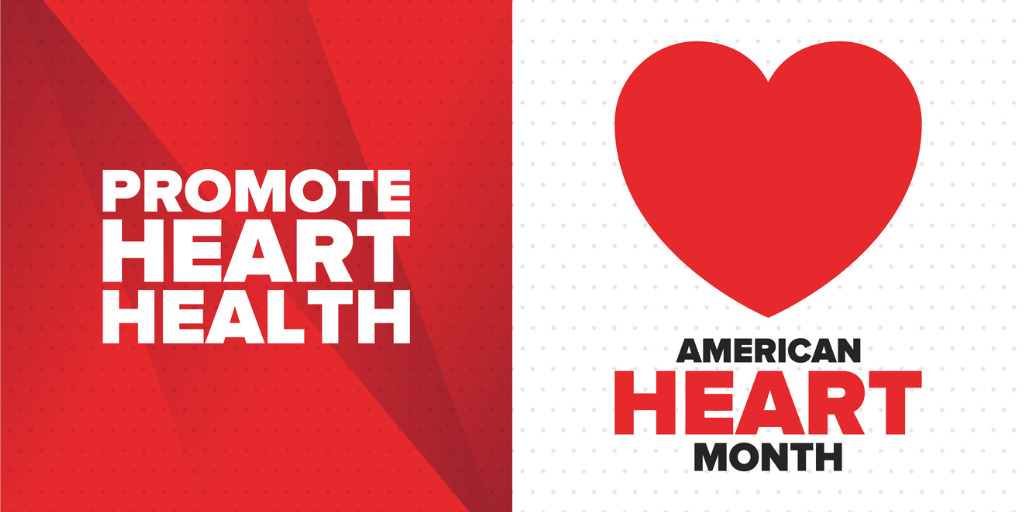FDA Office of Women's Health Update Archive
The Office of Women's Health e-Update highlights women's health initiatives, meetings, and regulatory safety information from the U.S. Food and Drug Administration (FDA). The e-Update is disseminated via email to the public.
Current Issue: January-February 2022
Message from the Associate Commissioner
Dear Colleagues,
As we settle into 2022, I encourage you to take time to review and prioritize your personal health goals for the new year. American Heart Month reminds us to focus on our heart health. Heart disease is the leading cause of death for women in the United States. According to the CDC, only about half (56%) of women recognize that heart disease is their number 1 killer. Understanding that women can have unique risk factors, symptoms, and experience heart disease differently than men is critical. We encourage you to take time to educate yourself and others by viewing our video Getting a Beat on What Women Know About Heart Health.
In addition, our OWH February blog post provides important tips to help you make healthy decisions to protect your heart. We also invite you to learn more in our Call to Action below. Please continue to share awareness about this important topic.
Sincerely,
Kaveeta Vasisht, M.D., Pharm.D.
Associate Commissioner for Women's Health
Director, Office of Women's Health
CORONAVIRUS UPDATES
Below are links to specific COVID-19 topics and the latest vaccine fact sheets, with a full list of the latest COVID-19 information from the FDA here.
- FDA Advisory Committee Meeting to Discuss Request for Authorization of Pfizer-BioNTech COVID-19 Vaccine for Children 6 Months Through 4 Years of Age
- FDA Takes Key Action by Approving Second COVID-19 Vaccine
CALL TO ACTION
OWH continues to cover women’s health topics that focus on preventing and managing disease and helping women to live healthier lives.
In January, during Cervical Health Awareness Month, we focused on the importance of cervical cancer screening. There are two types of tests: the Pap test and the human papillomavirus (HPV) test. There are different types of HPV (human papillomavirus), a sexually transmitted virus, that can cause cancer of the cervix. You and your healthcare provider should discuss your risk for cervical cancer, the pros and cons of the screening tests, at what age to start your screenings, and how often you should get screened. Learn more about HPV here.
This February, during American Heart Month, check out OWH’s latest blog for tips to help you make good decisions throughout your lifetime to protect your heart. Nearly half of all Americans have at least one of the top three risk factors for heart disease: high blood pressure, high cholesterol, and smoking. We have resources to help women of all ages learn how to use FDA-approved drugs and devices safely to prevent and treat heart disease. Learn more and work with your healthcare provider to create a heart healthy plan that works for you.
WOMEN'S HEALTH HIGHLIGHTS
Risk of Strangulation with Enteral Feeding Delivery Sets
The U.S. Food and Drug Administration (FDA) is warning health care providers, parents and caregivers that there is a risk of strangulation in children who receive enteral feeding. The feeding set tubing can become wrapped around a child’s neck and cause strangulation or death. The FDA has received reports of two toddlers who died after being strangled by the tubing.
FDA Sodium Reduction Efforts Underscored in USDA’s Transitional Nutrition Standards for School Meals
One of the U.S. Food and Drug Administration’s top priorities is to improve the health of Americans through better nutrition. We are pleased to see the U.S. Department of Agriculture (USDA) Food and Nutrition Service’s final rule issued on transitional nutrition standards for school-based meals, an action that supports ongoing whole-of-government efforts to improve nutrition, reduce chronic disease and help create a healthier food supply for all.
FDA Approves First Generic of Restasis
The U.S. Food and Drug Administration has approved the first generic of Restasis (cyclosporine ophthalmic emulsion) 0.05% single-use vials (eye drops) to increase tear production in patients whose tear production is presumed to be suppressed due to ocular inflammation associated with keratoconjunctivitis sicca (commonly known as dry eye). Increased tear production was not seen in patients currently taking topical anti-inflammatory drugs or using punctal plugs.
See Something, Say Something” Applies to FDA Products Too
It’s easy to report unexpected side effects and other problems with FDA-regulated products through the MedWatch program.
FDA Releases Federal Interagency Working Group Scientific Opinions on Testing Methods for Asbestos in Talc-Containing Cosmetic Products
The U.S. Food and Drug Administration released a white paper developed by the Interagency Working Group on Asbestos in Consumer Products (IWGACP) that contains scientific opinions for the testing of talc-containing cosmetics and talc intended for use in cosmetics for the possible presence of asbestos, a known human carcinogen with well-documented health risks. These opinions of scientific experts are intended to inform the FDA’s consideration of testing methods for talc and talc-containing cosmetics.
FDA Releases CDRH Health of Women Strategic Plan to Better Inform Medical Device Research and Regulation for All Women
As part of the U.S. Food and Drug Administration’s continued commitment to protect and promote the health of all women, the Center for Devices and Radiological Health (CDRH) is sharing its Health of Women Program Strategic Plan. CDRH initially issued a proposed strategic plan in September 2019 and has considered public feedback to inform this strategic plan, which lays out the framework to further the FDA’s mission by protecting and promoting the health of women, strengthening regulatory science, and identifying and addressing current and emerging issues in medical device research and regulation for the health of all women.
FDA Announces Qualified Health Claim for Magnesium and Reduced Risk of High Blood Pressure
The U.S. Food and Drug Administration (FDA) announced in a letter of enforcement discretion that it does not intend to object to the use of certain qualified health claims regarding the consumption of magnesium and a reduced risk of high blood pressure (hypertension), provided that the claims are appropriately worded to avoid misleading consumers and other factors for the use of the claim are met.
Moor Herbs Recalls “Angel Formula” Infant Formula Because of Possible Health Risk
Moor Herbs of Detroit, MI is recalling its Angel Formula, because FDA testing determined that the product did not meet specific nutrition and labeling requirements for infant formula, even though it is marketed as such. When the product was tested, the iron, sodium, and potassium content were well over the maximum allowed, which could potentially lead to iron overload and/or electrolyte imbalances. In addition, the product did not have vitamin D, and a vitamin D deficiency can potentially lead to rickets, a softening and weakening of bones.
FDA Authorizes Marketing of Tobacco Products that Help Reduce Exposure to and Consumption of Nicotine for Smokers Who Use Them
The U.S. Food and Drug Administration authorized the marketing of 22nd Century Group Inc.’s “VLN King” and “VLN Menthol King” combusted, filtered cigarettes as modified risk tobacco products (MRTPs), which help reduce exposure to, and consumption of, nicotine for smokers who use them. These are the first combusted cigarettes to be authorized as MRTPs and the second tobacco products overall to receive “exposure modification” orders, which allows them to be marketed as having a reduced level of, or presenting a reduced exposure to, a substance.
FDA approves add-on therapy to lower cholesterol among certain high-risk adults
FDA has approved Leqvio (inclisiran) injection as a treatment to be used along with diet and maximally tolerated statin therapy for adults with heterozygous familial hypercholesterolemia (HeFH) or clinical atherosclerotic cardiovascular disease (ASCVD) who require additional lowering of low-density lipoprotein cholesterol (LDL-C). Leqvio works to reduce circulating levels of LDL-C, commonly known as “bad cholesterol.” Leqvio is approved at a 284 mg dose administered as an initial under-the skin injection, a second dose at three months, and continued treatment once every six months after that point.
FDA Approves First Injectable Treatment for HIV Pre-Exposure Prevention
The U.S. Food and Drug Administration approved Apretude (cabotegravir extended-release injectable suspension) for use in at-risk adults and adolescents weighing at least 35 kilograms (77 pounds) for pre-exposure prophylaxis (PrEP) to reduce the risk of sexually acquired HIV. Apretude is given first as two initiation injections administered one month apart, and then every two months thereafter. Patients can either start their treatment with Apretude or take oral cabotegravir (Vocabria) for four weeks to assess how well they tolerate the drug.
Pregnancy Registry
Pregnancy exposure registries are studies that collect health information on exposure to medical products such as drugs and vaccines during pregnancy.
Learn more about pregnancy registries today!
Participate in Upcoming FDA Meetings
- Conversations on Cancer Program, Black History Month Program, Closing Gaps - Building Trust in Clinical Trials for Our Communities, February 9, 2022
- Meeting of the Oncologic Drugs Advisory Committee Meeting Announcement, February 10, 2022
- Joint Meeting of the Anesthetic and Analgesic Drug Products Advisory Committee and the Drug Safety and Risk Management Advisory Committee, February 15, 2022
- Vaccines and Related Biological Products Advisory Committee February 15, 2022 Meeting Announcement, February 15, 2022
- Promoting Clinical Trial Diversity for Racial and Ethnic Minority Populations Living with Diabetes, February 15, 2022
- Public Meeting: FDA Rare Disease Day 2022, March 4, 2022
Visit FDA Meetings, Conferences and Workshops to find out about available meetings.
Past OWH e-Update Issues
-
December 2021
-
November 2021
-
October 2021
-
September 2021
-
August 2021
-
July 2021
-
June 2021
-
May 2021
-
April 2021
-
March 2021
-
February 2021
-
January 2021
-
December 2020
-
November 2020
-
October 2020
-
August 2020
-
July 2020
-
June 2020
-
May 2020
-
April 2020
-
March 2020
-
January-February 2020
-
December 2019
-
November 2019
-
October 2019
-
September 2019
-
August 2019
-
July 2019
-
June 2019
-
May 2019
-
April 2019
-
March 2019
-
November/December 2018
-
October 2018
-
September 2018
-
August 2018
-
July 2018
-
June 2018
-
April/May 2018
-
March 2018
-
February 2018
-
January 2018



